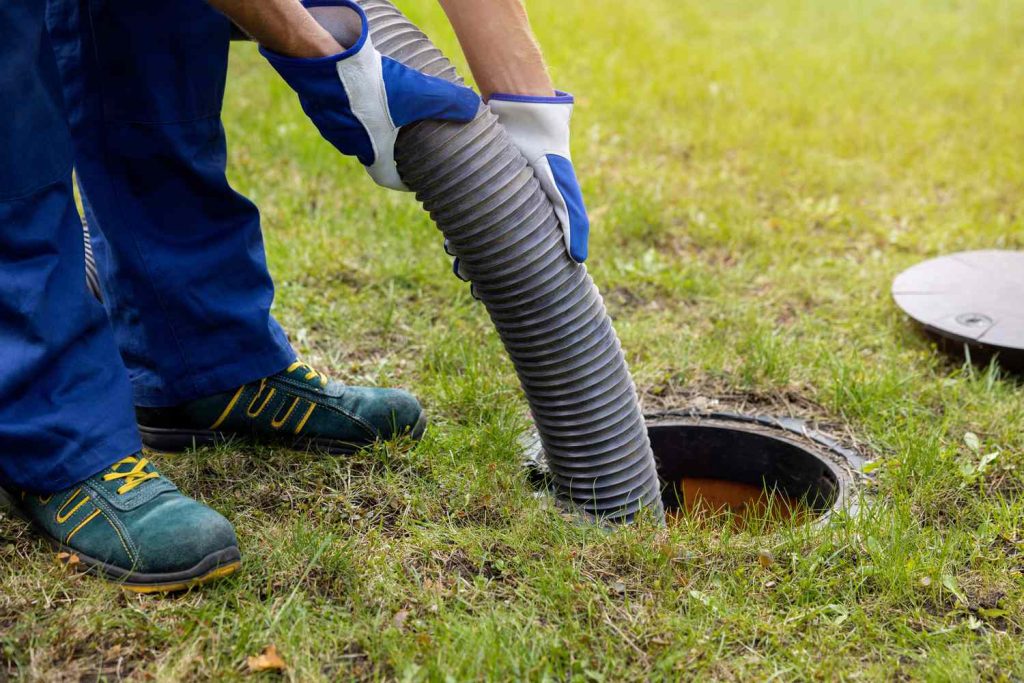If you are a homeowner with a septic system, you have probably wondered: How often do I actually need to clean out my septic tank? The answer is not as simple as a one-size-fits-all rule. Several things come into play like your family size, your tank’s capacity, and even the type of soil in your yard. Ignoring these factors could mean a stinky and expensive headache down the road.
Let’s break it down so you know exactly what to look for and how to avoid septic surprises.
What Affects How Often You Should Pump Your Septic Tank?
Not all septic tanks are created equal! Here are a few things that really make a difference:
Age of Your Septic Tank:
- Older tanks can fill up faster due to wear and tear.
- Newer tanks typically need less frequent cleaning.
Soil Type Matters:
- Sandy soil: Drains faster, so solids do not build up as quickly.
- Clay soil: Drains slowly, which means solids can accumulate and you will need to pump more often.
Tank Size and Design:
- A bigger tank = more room for waste and longer intervals between cleanings.
- Smaller tanks = more frequent pump-outs.
Tip: Take a quick look at your tank’s age, the soil in your yard, and how your system is designed. These little details go a long way in setting up your cleaning schedule. For reliable and expert help, check out septic tank pump outs in Sunshine Coast for local services.

Does Tank Size Really Matter?
Yes, it does! Here is why:
If You Have a Large Tank:
- Less frequent cleanings you can go longer between pump-outs.
- Materials: Plastic or fiberglass tanks are durable and often come in larger sizes.
If You Have a Small Tank:
- More frequent maintenance usually every year or two.
- Risks: If you skip cleanings, you risk backups or damage to your drain field.
Bottom line: Know your tank size, and use it to plan your maintenance schedule.
Warning Signs Your Septic Tank Needs Attention Right Now
Do not ignore these red flags! If you notice any of the following, it is time to call in the pros:
- Foul odors near drains or outside by the tank
- Slow drains throughout your home
- Sewage backups in sinks or toilets yikes!
- Gurgling sounds in your plumbing
- Standing water or soggy spots in your yard
Quick action can save you thousands in repairs and a lot of mess.
Septic Tank Maintenance Myths Busted
Let’s clear up a few common misconceptions:
- Myth: Additives/chemicals mean I do not have to pump my tank.
- Fact: Nothing replaces good old-fashioned pumping for getting rid of sludge.
- Myth: If the tank is not overflowing, it is fine.
- Fact: Waiting until it is full can lead to system failures and big repair bills.
Remember: Regular checks and pump-outs are the real key to a healthy system.
How to Make Your Septic Pump-Outs Last Longer
A little prevention goes a long way! Here is what you can do:
Stick to a Pumping Schedule
- Mark it on your calendar.
- Keep records of pump-outs and inspections.
- Adjust as needed if your household size changes.
Watch Your Water Usage
- Fix leaky faucets and toilets ASAP.
- Use low-flow toilets and showerheads.
- Spread out laundry and dishwasher loads.
Use Septic-Safe Products
- Choose cleaning products labeled septic safe.
- Avoid dumping harsh chemicals or antibacterial products down the drain.
- Go for eco-friendly detergents and cleaners.
Why Bother? The Environmental & Health Benefits
Taking care of your septic system is not just good for your wallet it is good for the planet and your family’s health:
- Protects groundwater and your drinking water!
- Prevents pollution of nearby streams, lakes, and soil
- Reduces health hazards from leaking or overflowing tanks
What Does Septic Maintenance Cost?
- Regular Pumping:
Expect to pay a few hundred dollars every few years less than a major repair.
- Inspections:
Usually a small fee, but can spot problems early.
- Repairs:
Can cost thousands if you neglect maintenance.
Tip: Budget a little each year, and you will avoid big surprises later.
Make a Maintenance Plan That Works for You
Here is how to stay on top of things:
- Know your tank size and age.
- Count the people in your home.
- Set reminders for inspections and pump-outs.
- Keep a simple log of maintenance.
- Pay attention to any warning signs.
A little planning = no nasty surprises!
The Bottom Line
Septic tank care is not rocket science, but it does take some attention. By understanding your system’s needs, watching for trouble, and sticking to a simple maintenance plan, you will keep things running smoothly and avoid a whole lot of hassle. Got questions or need help? Do not hesitate to call a septic pro for advice or an inspection. Happy flushing!

